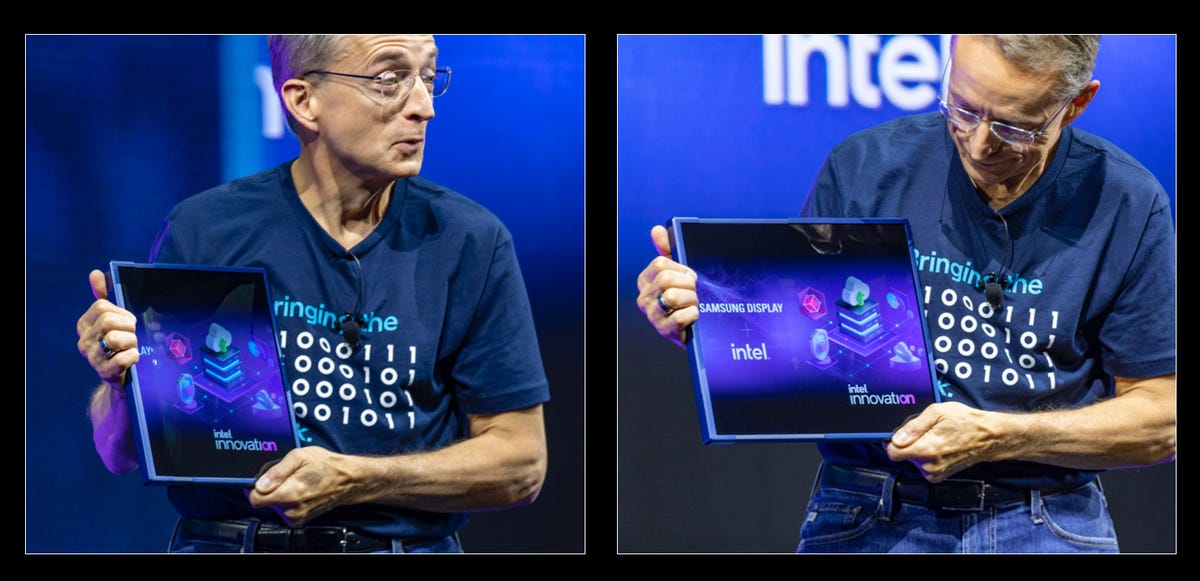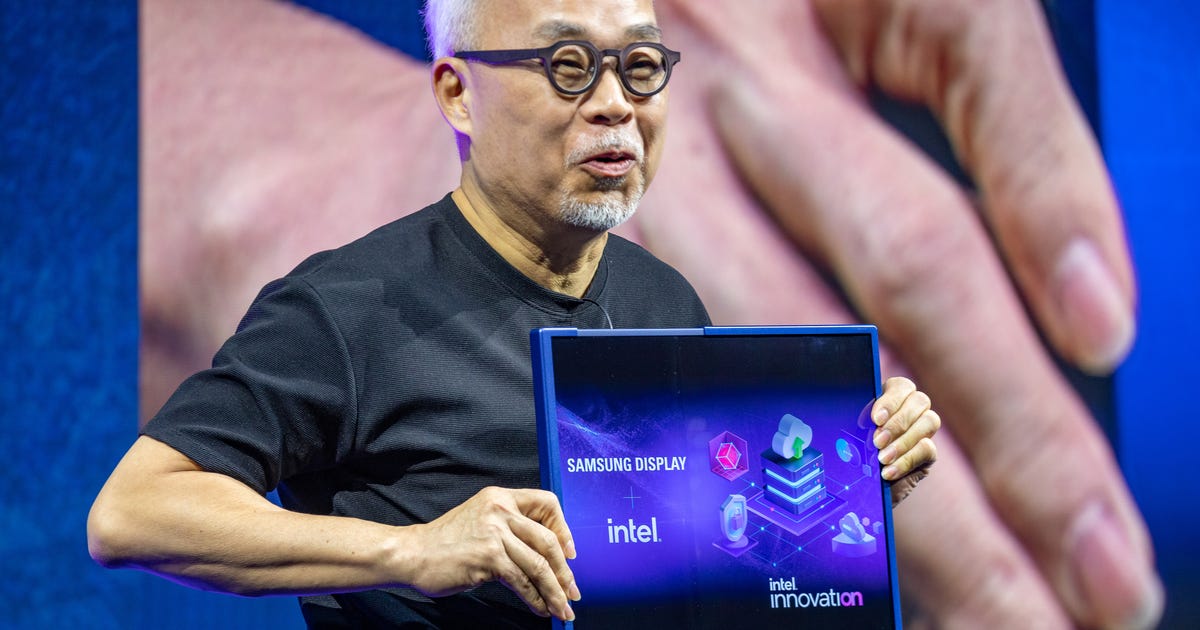‘Slidable’ PC Screen Stretches From 13 to 17 Inches and Back
Intel and Samsung have another new idea for how to make a PC: a “slidable” device with a screen that extends out to a much larger size when you pull the edge.
Lacking a keyboard, the slidable PC looked more like a tablet. But with a screen diagonal ranging from 13 inches to 17 inches, it was sized more like a laptop. Intel Chief Executive Pat Gelsinger and J.S. Choi, leader of Samsung’s display division, showed the device Tuesday at Intel Innovation, a conference where the company also debuted Intel’s new 13th Generation Core processors.
A slidable PC device will satisfy needs for both a large screen and portability, Gelsinger said. It’s a demonstration of what’s possible with OLED display technology that’s built onto a flexible plastic substrate.
It isn’t clear when or even if the slidable PC idea will mature into a product. But the design shows how the PC industry continues to try out new hardware to extend beyond traditional clamshell laptops with a keyboard and screen connected by a hinge. Other examples include laptops whose screens hinge all the way backward to convert the device into a tablet and the ThinkPad X1 Fold, with a folding screen.

Intel CEO Pat Gelsinger shows how a “slidable” PC’s screen can extend from a 13-inch diagonal to a 17-inch diagonal.
Stephen Shankland/CNET
Moving parts and flexible components heighten the challenges of complexity and reliability. Costs also increase, a concern during a shrinking PC market. But novel designs can find a niche, and premium PCs are faring better than budget PCs, Michelle Johnston Holthaus, head of Intel’s PC chip group, said at the conference.
Earlier this year, Samsung demonstrated a slidable phone screen along with other novel designs.
Although the slidable PC prototype didn’t have a keyboard, one could be added as the design matures, for example by folding out from underneath, Holthaus said.
A close-up view of the slidable PC prototype from Intel and Samsung shows some ripples on the left side of the flexible screen, the area that curves when the device is pushed back into its shortened configuration.
Stephen Shankland/CNET
Welcome, Raptor Lake processors
Also at the event, Gelsinger showed off the new Raptor Lake processors that are scheduled to hit store shelves on Oct. 20. The processors speed up the CPU cores dedicated to high-priority tasks and double the number of CPU cores dedicated to running lower priority jobs more efficiently.
The new chips reach new speeds, with a clock that ticks as fast as 5.8GHz, but they also draw more power in desktop machines. Expect an improvement in 2023: “Early next year we’ll release a [model] that for the first time ever hits 6 gigahertz out of the box,” though Intel will ship it only in limited volumes, Gelsinger said.
PC processors are key to Intel’s future, but the company faces fierce competition. AMD has eroded Intel’s dominance, particularly in the high-end gaming PC market, and AMD’s Ryzen 7000 line promises a significant speed boost.
Apple, which ejected Intel from its Mac laptops and desktops in favor of its own M1 and M2 processors, is another challenge for Intel.
“They’re a formidable competitor, and they have a good part. Our goal is to build a part that is equally as good,” Holthaus said. “As you see future generations, when you think about performance per watt, we’re going to have products that absolutely compete with Apple.”
For all the latest world News Click Here

